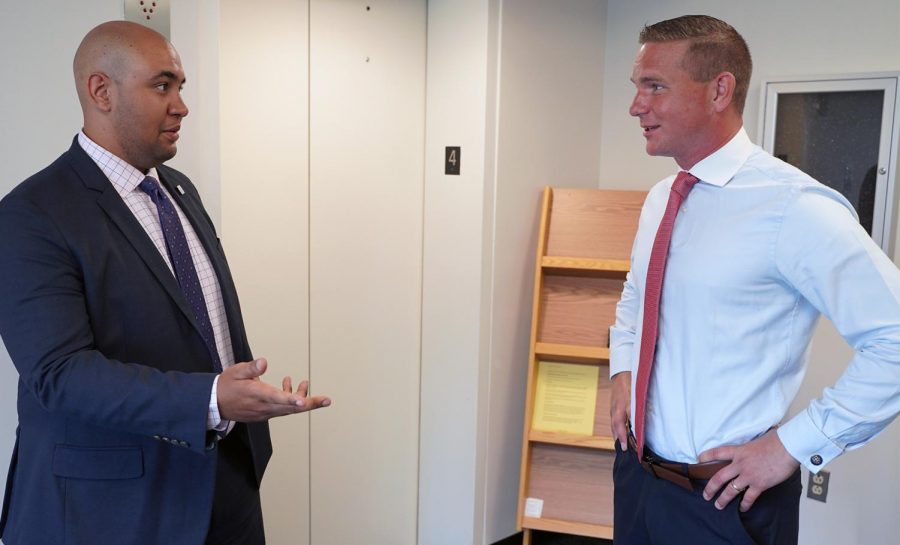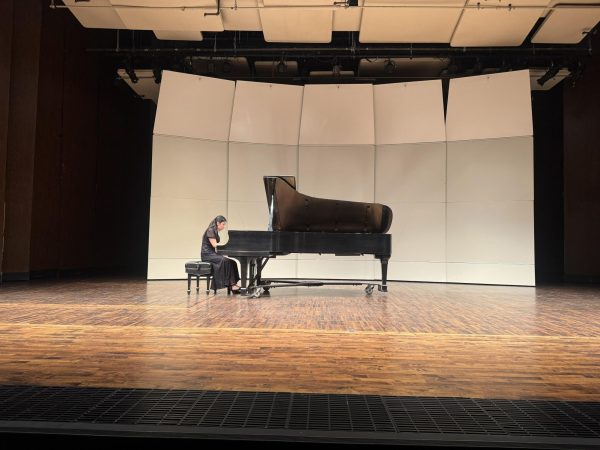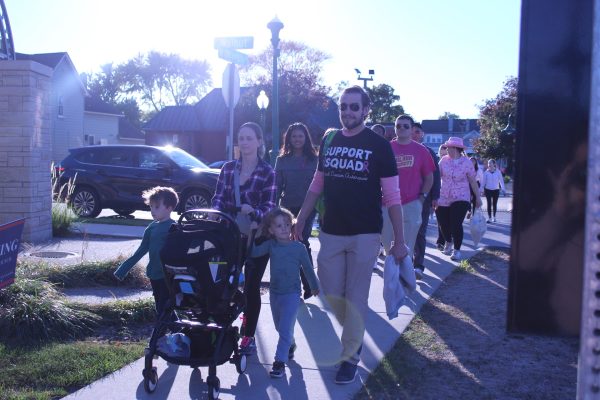OUWB welcomes new development associate
Jordan Nash (left) – Oakland University William Beaumont School of Medicine (OUWB)’s new development associate.
In July, Jordan Nash – Oakland University William Beaumont School of Medicine (OUWB)’s new development associate – started his new journey to primarily build connections between OUWB alumni and current OUWB members.
Prior to joining OUWB, Nash studied communication and earned his bachelor’s degree at the University of Michigan-Flint. He also managed online graduate admissions for Norwich University in Vermont. He is now pursuing a master’s degree in public administration.
His passion for education and student development began with his experiences of internships and various job opportunities.
“In my experience, I’ve found that being personable, always having an open heart and mind, and the ability to empathize with others are crucial to building the most meaningful of relationships,” he said.
During his first few months at OUWB, he has spent time with OUWB students at events such as White Coat Ceremony and the Nightingale Awards – what he calls meaningful and unforgettable experiences. Although it has only been a few months since his first day, Nash said he has been impressed with his experience at OUWB.
“It became clear very early on that faculty and staff are extremely passionate, knowledgeable and perhaps most important — caring,” Nash said. “In my brief time here, I have also been fortunate to have spent time with our students at events as meaningful as White Coat Ceremony and the Nightingale Awards — experiences I won’t soon forget.”
According to Nash, his role will heavily focus on building relationships between OUWB alumni and members of the community. Networking with the alumni can often serve its purpose as a source of volunteers and financial supporters and promote the mission and goals of each institution.
OUWB’s mission is to “enable its students to become skillful, ethical and compassionate physicians, inquisitive scientists who are invested in the scholarship of discovery and dynamic and effective medical educators.”
Nash and his team are currently working on the process of revamping many of their existing programming such as HOST – a program designed to assist students during the residency interviewing process, and focusing on new initiatives that will provide mentorship opportunities to its students.
When asked to describe his job at OUWB in three words, he said it is a “relationship building business.” Through relationships with alumni, parents, families and community members, he believes in the ability of his team to accomplish achievements in the name of OUWB.
For all undergraduate students who are interested in becoming a part of the OUWB community, Nash provided a piece of advice.
“…understand that while a lot of other institutions pride themselves on a holistic approach to education, OUWB truly embodies it,” he said. “This can be seen in the quality of our students, the number of community outreach projects and the dedication of our faculty. OUWB cares.”






Anonymous • Oct 1, 2021 at 6:31 PM
I hope the program at OUWB grows. It is a serious asset to OU. There are some things my premed students should know:
Royal Oak is one of the lowest reimbursed health systems in our area. Beaumont has tried various approaches to raise the reimbursement for the RO campus, and having a medical education program attached to it is one thing that helps them do that. I remain hopeful that the OUWB program was created to be more than just window dressing to assist with the billing issue. But for me to be convinced of that, the number of students in the program must grow more than it has in recent years (without lowering standards).
Unfortunately, I have seen little effort to promote collaborations between OUWB and the OU faculty. When we do reach out to faculty at Beaumont, we find they have been discouraged from doing basic, benchtop research in favor of smaller translational projects. This makes for smaller grants and limits the scientific advances that can be made. And keeping OUWB as a separate, distinct entity from the main university limits the ability of both institutions to apply for research grants. For example, if a Beaumont researcher applies for an NIH grant they cannot claim to have resources that belong to OU, and vice versa. The recent turnover in research administration at Beaumont and OUWB will, hopefully, help with the research profile.
Finally, OU students should be aware that Beaumont and the OUWB program do not want to be seen as a parochial, local program. They are reluctant to admit large numbers of medical students with OU undergraduate degrees. They seek a diverse incoming class from a variety of undergraduate institutions.